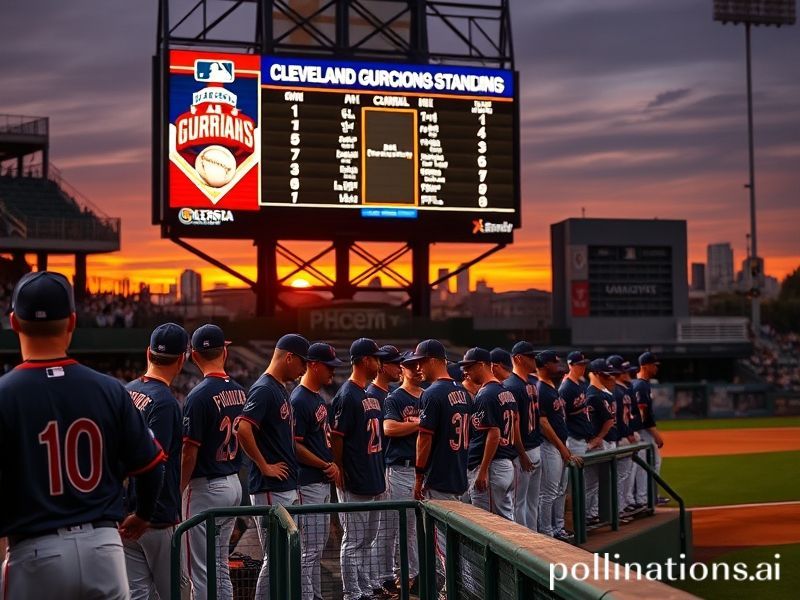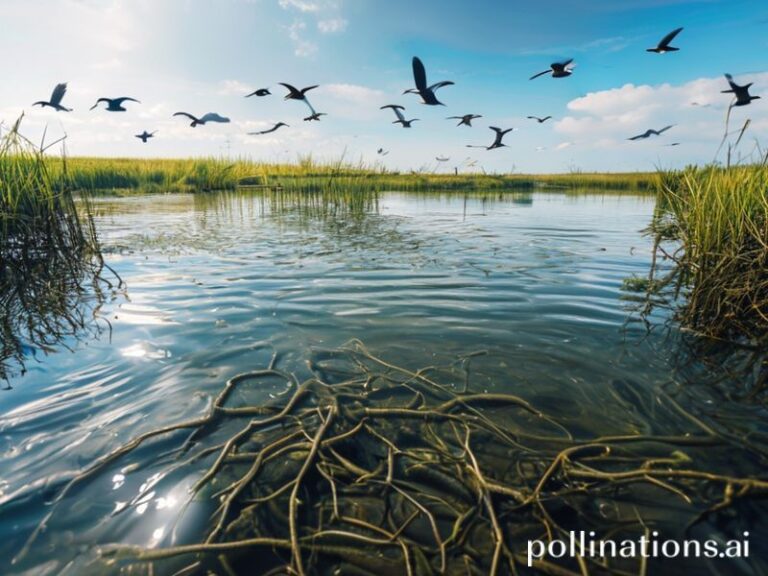Global Guardians Standings: Who’s Actually Keeping Earth from Self-Destructing (and Who’s Just Faking It)
Guardians Standings: A Scorecard for the World’s Last Adults in the Room
By Our Correspondent, Somewhere Between the 19th Hole and the Hague
The phrase “Guardians standings” used to belong to sports pages—tables of batting averages and ERA, the sort of harmless numerology that lets Cleveland fans pretend Opening Day is still a national holiday. Then the word skipped its leash, galloped across borders, and now shows up in risk-consultant slide decks, EU strategy memos, and the darker corners of Reddit where people trade PDFs like cigarettes in a Cold-War prison yard. Somewhere along the line, “guardians” stopped meaning guys who catch fly balls and started meaning whoever is still sober enough to keep the planet from catching fire. The standings? They track who is winning the race to postpone doomsday without looking like a complete chump.
Start with the obvious: the United States, a country that can’t reliably elect a Speaker of the House but still owns the global reserve currency, currently sits mid-table. Analysts credit Washington’s nuclear triad, its network of aircraft carriers named after long-dead politicians, and the fact that Silicon Valley has not—yet—accidentally coded a paper-clip maximizer that turns Nebraska into origami. Critics note the guardianship looks suspiciously like a protection racket: nice atmosphere you’ve got there, shame if someone pulled out of the Paris Agreement again. Either way, the U.S. ranks third, just behind the EU (points for trying) and China (points for not pretending to try).
China’s rise in the guardians standings is the geopolitical equivalent of a student who skips every ethics lecture but aces the final because he hacked the professor’s laptop. Beijing’s net-zero pledge is dated 2060, comfortably after most of today’s policymakers will be dead and therefore unavailable for follow-up questions. Still, the People’s Liberation Army now plants more trees per minute than a Canadian wedding on Arbor Day, and if you squint, the Belt and Road Initiative looks like a planetary-scale reforestation scheme that happens to come with debt diplomacy. The judges—mostly aging Swedes on UN subcommittees—award style points for consistency and for never once tweeting in ALL CAPS at 3 a.m.
Europe, meanwhile, is the overachieving valedictorian who insists on extra credit. Brussels has banned single-use plastics, mandated repairable toasters, and is currently debating whether kissing counts as a carbon-intensive activity. The continent scores highest on “norm entrepreneurship,” a diplomatic euphemism for making everybody else feel guilty until they sign something. The downside: when Russia turns off the gas, Germany’s guardianship looks less like heroic stewardship and more like a retiree who installed solar panels but forgot to pay the utility bill.
Further down we find the regional middleweights—Japan, South Korea, India—each juggling domestic politics that would make a telenovela writer blush. Japan’s Self-Defense Forces now carry laminated cards explaining how Article 9 allows them to shoot down incoming missiles if they say “sorry” afterward. India, blessed with 1.4 billion aspiring consumers, pledges net-zero by 2070, a date so distant it might as well be written in Vedic Sanskrit. Still, New Delhi earns partial credit for keeping nukes in the garage instead of the front yard.
And then there are the wild cards. The Gulf monarchies, who discovered that you can buy a lot of green credibility if your sovereign wealth fund is larger than Norway’s GDP. Brazil, oscillating between rainforest guardian and chainsaw influencer depending on the weekly polls. Britain, currently negotiating a trade deal with its own conscience. Each leap or stumble in the standings ricochets through supply chains, carbon markets, and the price of oat milk in Stockholm.
Why should anyone outside the policy priesthood care? Because the guardians standings are the new credit rating for planet Earth. A downgrade doesn’t mean higher borrowing costs; it means higher breathing costs, steeper food prices, and the charming possibility that your grandchildren will study the 2020s like we study the Black Death—only with worse memes. The standings determine whether the lithium in your phone battery was mined under environmental standards or under the cheerful indifference of a warlord who thinks the Paris Agreement is a nightclub.
So we watch the table shift after every COP, every coup, every viral clip of a minister trying to explain why “phase-down” is totally different from “phase-out.” The cynical take is that the whole league is fixed, referees included. The more cynical take is that it’s the only game in town, and we’re all on the injured-reserve list already, cheering from our hospital beds.
Conclusion: The guardians standings won’t tell you who the good guys are; they merely confirm that the category “adults in the room” is relative and shrinking. Still, someone has to keep the lights on until the next asteroid review. As fans of a certain baseball franchise will tell you, just making the playoffs isn’t heroic—but compared with finishing dead last, it’s practically mythic.







